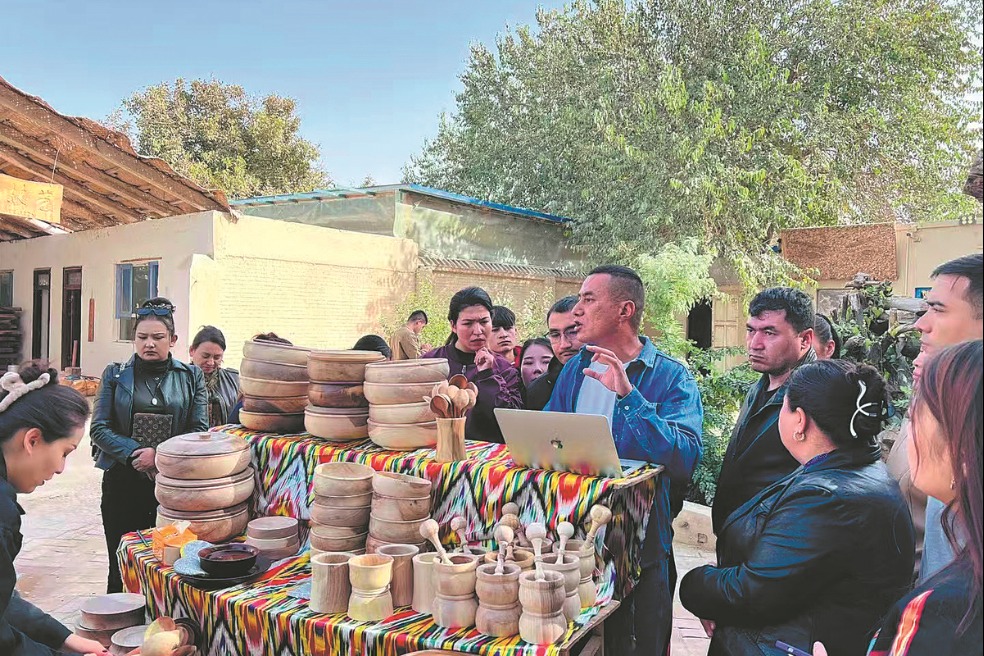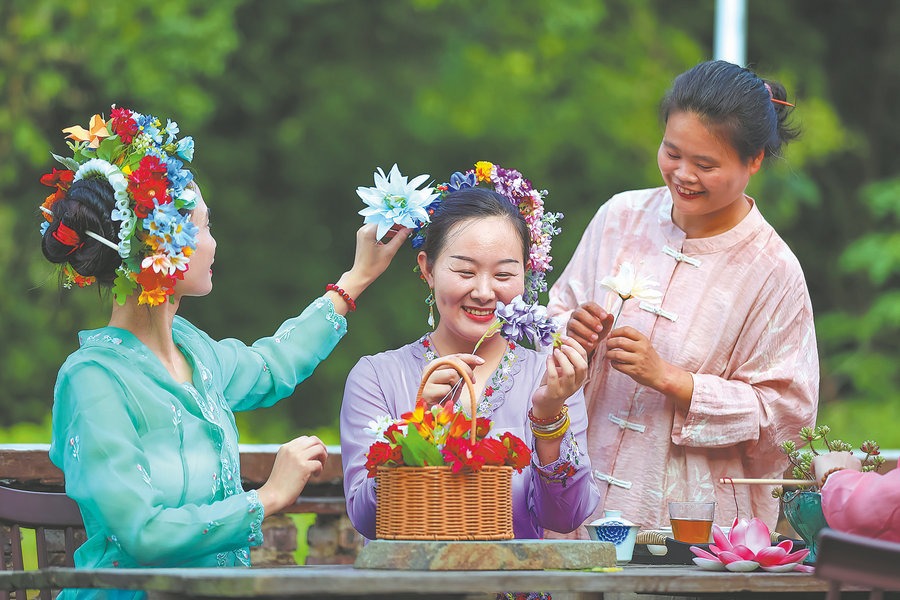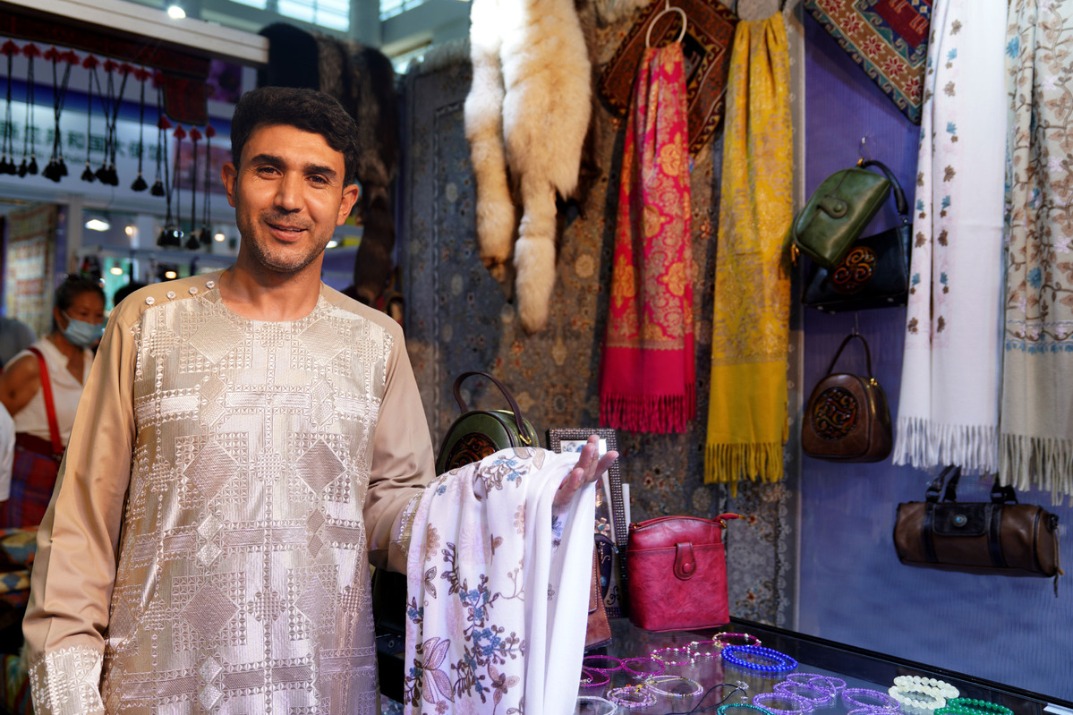WILD LIFE ENTHUSIASTS
Couple take to the hills to find a natural, environmentally friendly alternative to city living, Yang Feiyue reports.

A young couple that ventured into the mountains just outside the capital city have been exploring not just a pastoral life, but better ways of coexisting with nature.
Since the arrival of spring, Zhang Hehe and her boyfriend Zhao Tianxiao have been rising with the lark to care of the land they rented seven years ago.
Both born in Beijing in the 1980s, the couple have applied fertilizer, turned the soil, sowed seeds and laid the groundwork for farm animals they had planned to introduce.
Now that the summer has set in, it is busier than ever.
"It's hot and dry, and the seedlings need more water, which needs to be collected from underground and carried by hand," Zhang says.
"Plus, weeds grow faster and have to be taken care of," she adds.
About 70 kilometers northeast of downtown Beijing, the couple, both with a background of biological and environmental science, have managed to live off the land while enjoying the fun of nature and their efforts in preserving it.
The land covers an area of 2 hectares and sits in a satoyama setting, a Japanese term that refers to the borderland between human habitation and nature. They have built their life in an unassuming abode amid mountains, farmland, forests and a fruit garden.
"We came here to see if we could fit into the local ecological system-to go about our lives without interfering with other living things," Zhang explains.
The couple met each other in Norway, where they were both pursuing master's programs related to life science.
After graduation in 2009, Zhang worked with students at the NGO Friends of Nature in Beijing, while her boyfriend came back a year later and engaged in natural conservation.
Previous study and work experiences have predisposed them to a natural setting that is increasingly rare in the city.
They initially rented a small plot to grow vegetables for leisure and found great joy in the process for more than three years.
"My parents loved it, and we got to eat the food we grew by ourselves," Zhang says.
But it just whetted their appetite for a bigger challenge.
"We came up with the bold idea of living in the wilderness," she says.
The couple set their sights on reducing energy and resource consumption and on having the minimum environmental impact.
The place they had in mind would require arable land and forests and be about two hours away from the city.
Contrary to the public perception that big cities are practically ecological deserts, Beijing and Shanghai have many untapped forests and wetlands at their peripheries, many of which have a developed, rich ecosystem.
With a few well-placed inquiries, it didn't take them long to find the right spot.
"The land belongs to an old couple, who are too old to work on it," Zhang says.
So when they put it up for rent, Zhang and her boyfriend grabbed their opportunity, paying an annual rent of about 30,000 yuan ($4,453).
The farmhouse is simple and opens onto a vegetable patch. Further afield lies a vast stretch of cropland and a pasture. An orchard adjoins the back of the house and extends its way to a mountain slope that is 200 meters above sea level. Everything else within sight is complete wilderness.
"To be frank, doing farm work is a bit of a pain," Zhang says.
Although they know about plants and animals, they still spent the first two years feeling their way around the field and developing their agricultural skills.
"Sometimes, it seemed that we were in over our head, and it was more difficult than going to work in the city," she says.
"There is lots of stooping and squatting, which takes its toll on the lumbar region of the back and the knees."
They have to drive a kilometer to switch on the motor-pumped well to get the water transferred to an old-fashioned cistern.
However, the antiquated pipeline breaks occasionally, so they started to collect rainwater in two big pots. One is used to water the plants, while the other is sterilized and filtered to feed the chickens and other animals.
The tight water resources also encouraged the couple to design and build an ecological toilet.
"It is odor-free and invites no flies," Zhang says.
The human waste is mixed with wood chips for fermentation into compost, which then is used as fertilizer for the orchard.
"It is very friendly to the soil, and helps with healthy growth of the fruit trees," Zhang says.
The couple also don't use any pesticides or herbicides, and have applied their knowledge to use existing natural food chain to get rid of pests or weeds.
They have managed to raise more than 200 chickens and nearly 30 sheep, as well as several geese, dogs, cats and rabbits.
They have since reduced the number of animals to ease the burden on the land.
The animals eat the weeds at the orchard, where a dozen fruit trees offer apricots, pears, plums and chestnuts.
Wild animals are sometimes let in to consume the fruit falling off the trees.
"It's all about balance and making full use of everything, including the waste," Zhang says.
Although everything requires manual work, Zhang says they have been given opportunities to create a living that provides a lasting happiness.
"You'll have many inconveniences to overcome with brains and brawn, but the success will give you a sense of satisfaction," Zhang says.
They have set up a small meteorological station to collect data that has given them insight into the local climate conditions.
Infrared cameras have also been mounted to observe the wildlife, and they have found a surprising variety of wild animals, including leopard cats, a national level II protected species.
"We were beyond thrilled when we saw them for the first time," Zhang says.
Other animals include hedgehogs, shrews, weasels, roe deer and badgers.
The harvest is an additional reward.
"The jams we make out of the fruits that mature under natural conditions are really tasty," Zhang says.
After spending most of the daytime working in the field, the couple will stay in at night to watch a movie, listen to some music or read in the house before retiring to bed at around 10 pm.
As they have worked out a way of coexisting with nature, Zhang has begun to develop activities that enable children and parents to experience the lifestyle.
"They will see our water conserving device and environmentally-friendly detergents," Zhang says, adding that she's relieved to hear them say they will try such things back in the city.
"Some parents told me that their children have shortened their bathing time to save water following their visit," she adds.
Recently, the couple published a book that recounts their life in the mountains, including survival skills and their interactions with nature.
"We hope it will help our readers to address realistic problems while better understanding the relationship between people and nature from various perspectives," Zhang says.
In her opinion, a considerable number of modern people are afraid of animals, even insects, because they don't know the habits of the creatures.
"The young couple have found a life in the rural soil and nature, while giving back to them and taking care of other lives sharing the same space," says Lyu Zhi, a professor of life sciences from Peking University.
"It is an integration of self-fulfillment and altruism," Lyu says.
It's seven years before the lease on their plot is up, and the couple will continue their existing life in the mountains until then.
"We'll see if we can get a renewal," Zhang says.
"If not, we will find another place to live and offer other urban residents the possibility of enjoying a lifestyle coexisting with nature."
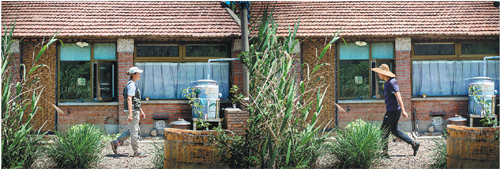
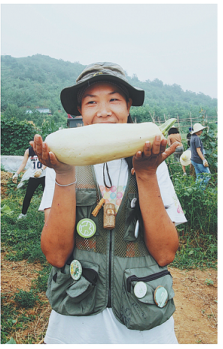
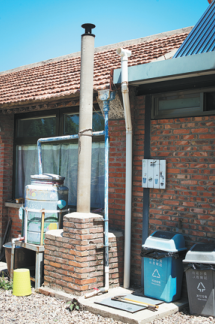
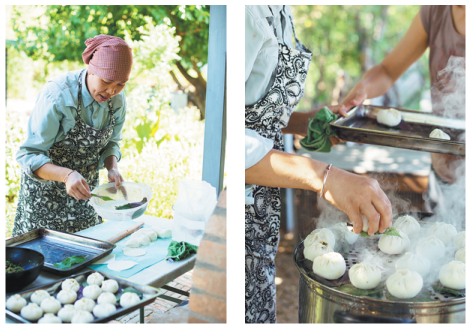
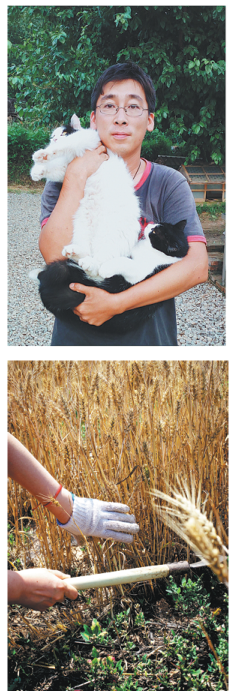
Today's Top News
- China's foreign trade up 3.5% in first eight months
- China's foreign trade up 3.5% in first eight months
- Xi sends congratulatory letter to 25th China intl investment, trade fair
- Belarus' full membership strengthens SCO cooperation
- Ethical AI urged in humanitarian work
- Resolution set to boost unity of Global South
















